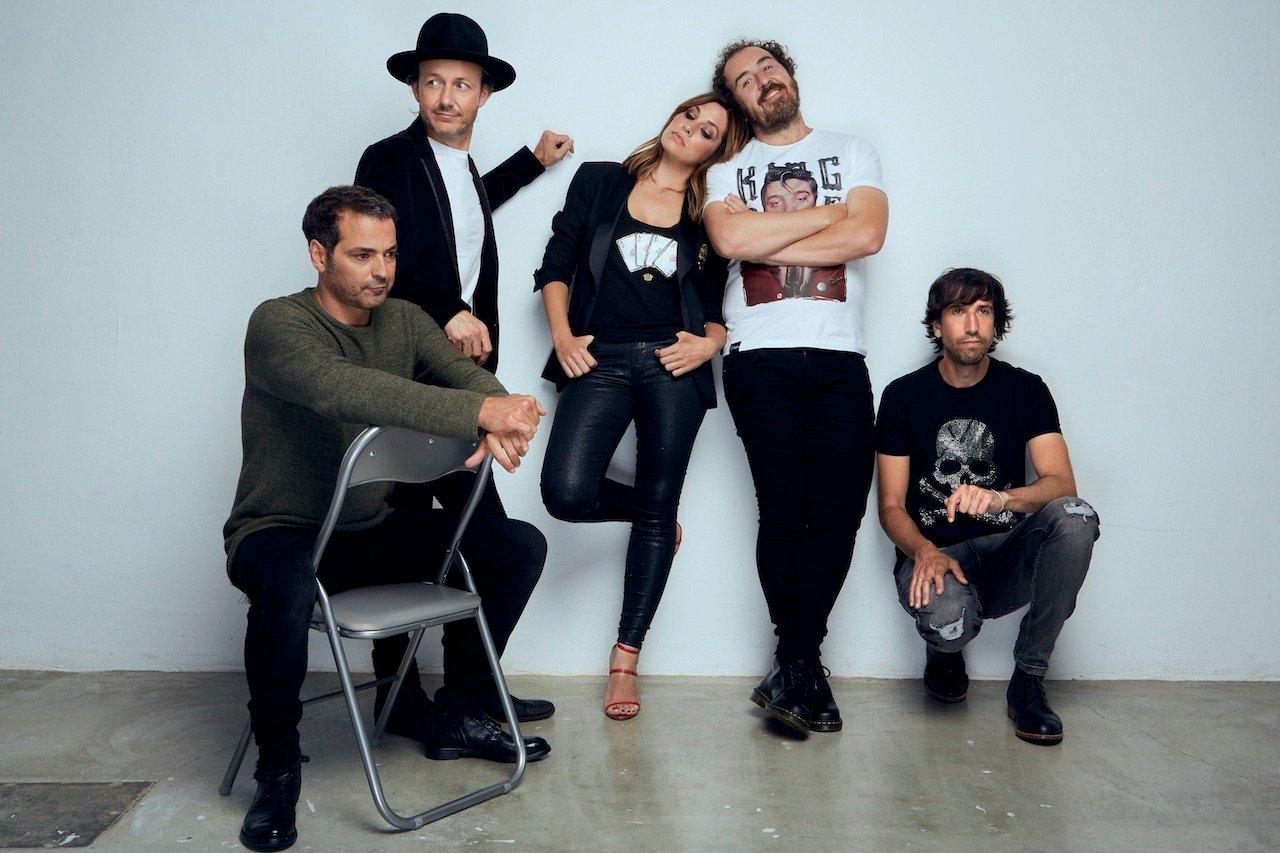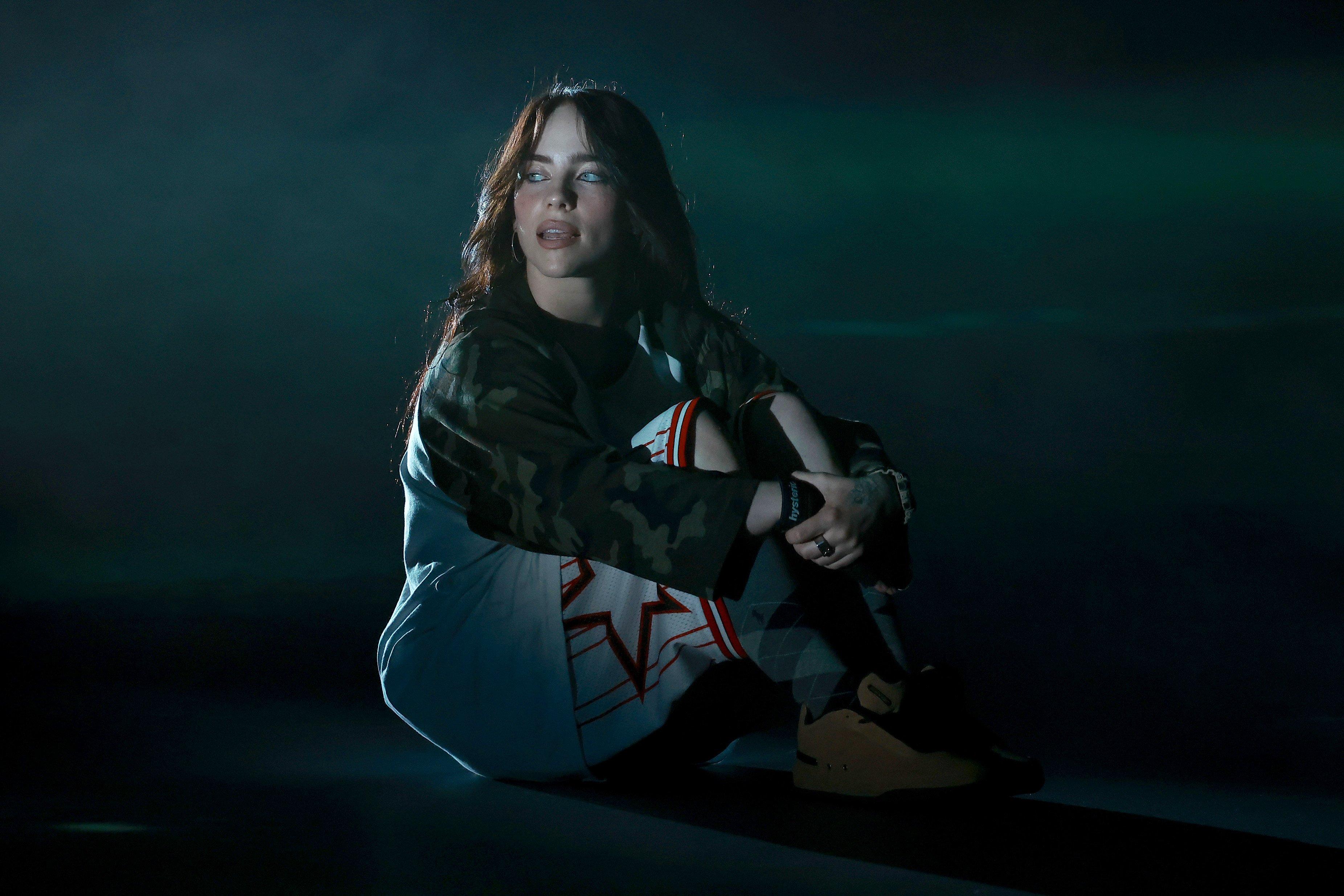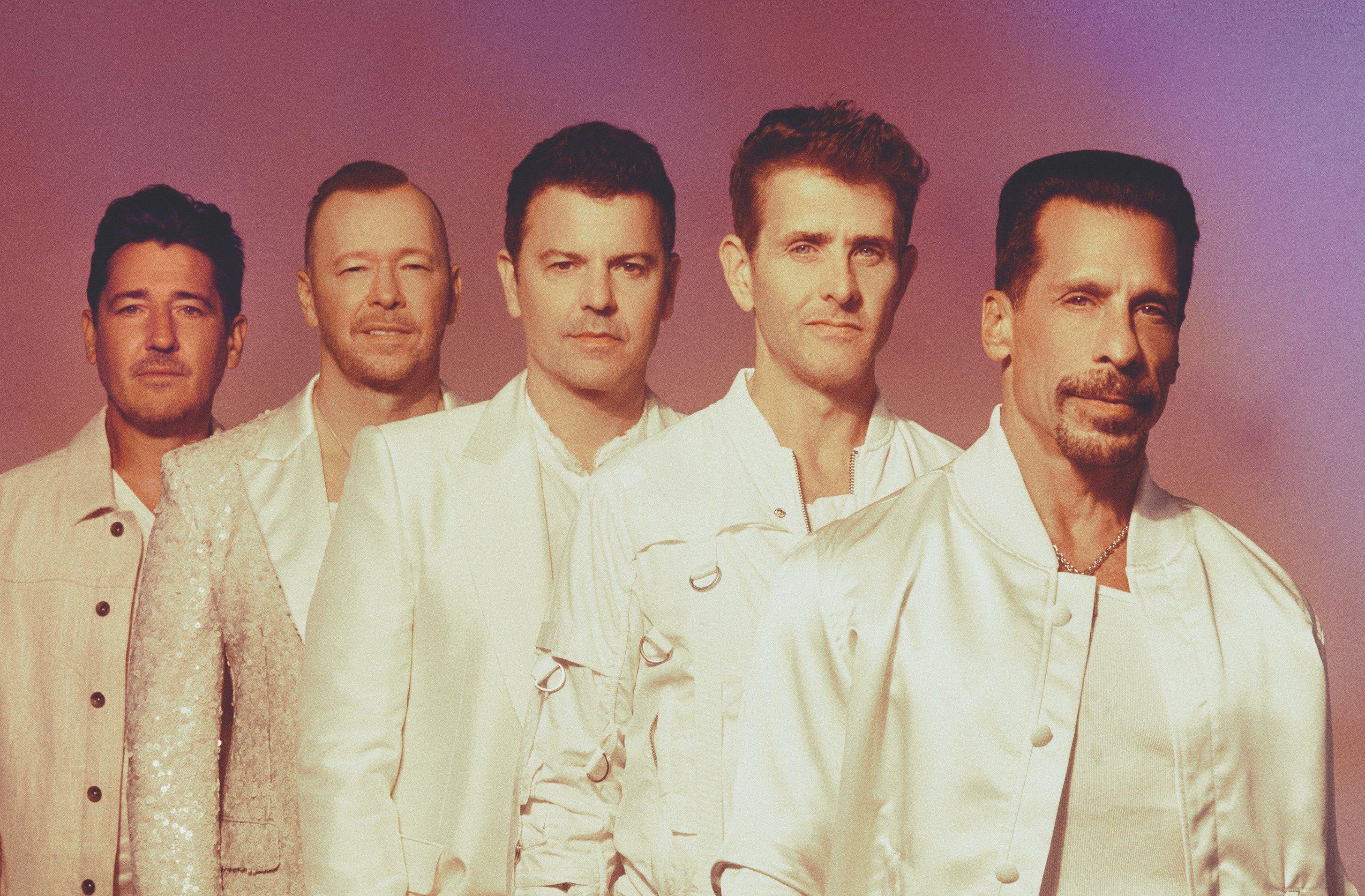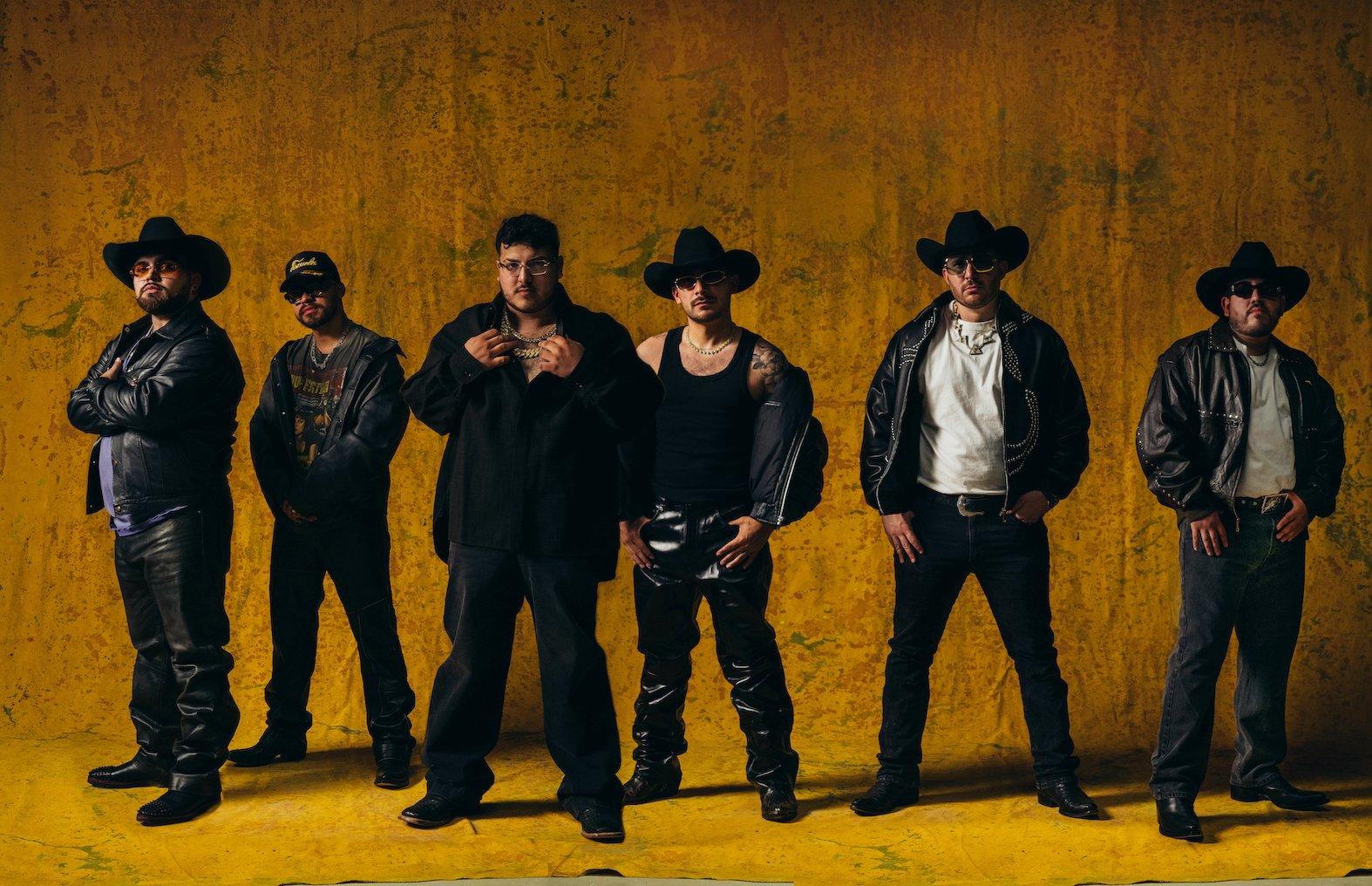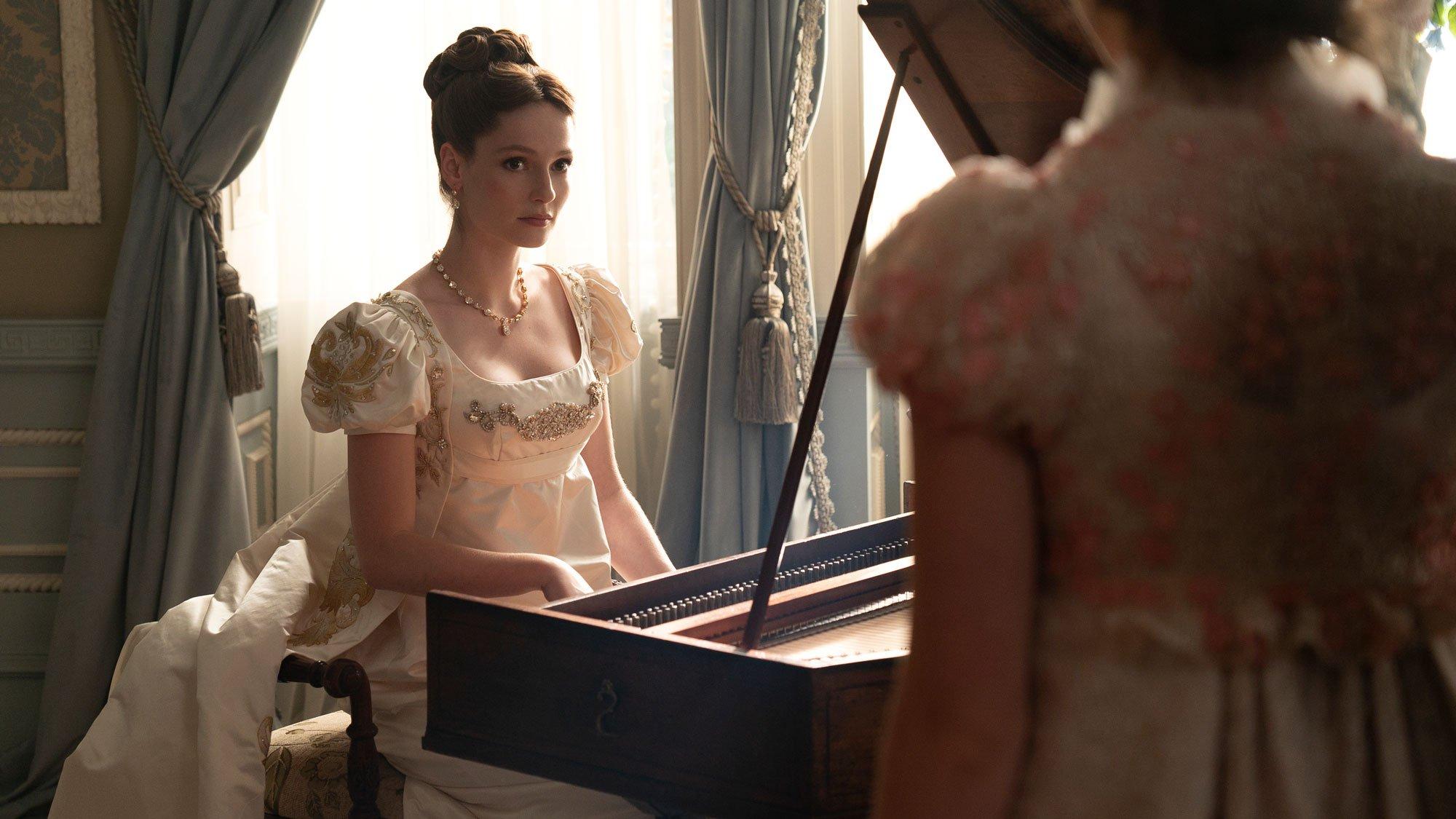With more than 20 years in the game and through a number of albums, La Oreja de Van Gogh's romantic pop songs and masterful storytelling have evoked tears, laughter and smiles. Four years after their last release, 2016's El Planeta Imaginario, the veteran band who formed in 1996 in Donostia-San Sebastian, Spain (vocalist Leire Martínez Ochoa joined the band in the late '00s) return with what they call their most autobiographical album yet.
Past albums have featured a mixture of personal songs and songs inspired by others, but this time around, Un Susurro en la Tormenta (a whisper in the storm) has the Latin GRAMMY-winning and GRAMMY-nominated band digging deep and looking to each other for lyrical inspiration. "All the songs on this album are ones that we have lived, all those songs are born from looking not around us but inward," Martínez Ochoa tells GRAMMY.com in a recent interview.
Back on the album promotional cycle during the pandemic for their eighth album, the band finds themselves hungry to be back on stage—their tour was postponed due to COVID-19. Despite the chaos, the commercially successful band doesn't worry too much about success these days.
"I think we have lost that kind of obsession with figures, data, survival. It is like we are calm, we have arrived, we are already in our zone," keyboardist Xabi San Martín says.
The charismatic San Martin and Martinez Ochoa recently spoke to GRAMMY.com about just how personal this album is, what role instruments play in amplifying their feeling, their growth as a band, what they want to do next, and more.
How’s life now that the world is so different?
Xabi: I live in 2008, so I have 12 years left to get [to 2020]. It's been quite a year—It's been a very strange year. We finished recording our new album in January and instead of going out to do interviews, promotion and concerts for it all over the world, we had to keep it in a drawer and we had to wait at home due to all the circumstances. This has been a really weird year. Let's hope the worst is over. The album has finally hit the streets. We are already preparing a tour for 2021 as if there was no virus. We are going to give it our all, give everything on stage. Our reality will be to play dumb and act as no virus exists and prepare the best possible show.
Beyond not being able to promote the album like usual, was any other aspect of the album affected by COVID?
Leire: Actually, not much. As Xavi said, the album was recorded before the state of alarm and confinement. We finished recording everything in the recording studio in January. The only thing that was affected, of course, is the tour. We should have been traveling and touring all over the United States and doing the entire summer tour in Spain since May. All that has been postponed, of course, but fortunately the only thing that affected us a little more initially was that we could not get together to shoot music videos. We had planned a music video the same weekend there was the state of alarm and all that had to be postponed. Fortunately now technology allows us to work from home, get projects done. The "Abrazame" music video was made from home and we believe it has ended up being that much more incredible. Sometimes you never know where opportunities will come from.
It’s true. It makes me wonder, how has this moment affected your creativity?
Xabi: I suppose that when we continue writing new songs we will be able to see how much of the virus [has affected the way we make] music. We just finished the album, it was practically in the mastering phase when the state of alarm started, so we’ve [used very little] creativity. We can tell you many colleagues have taken advantage of the confinements and the lockdown to write new music but there are more than 10 children that we have in total [among us] and they are small children, that is, our house was more like a battlefield in Syria, quite incompatible with creation of any kind [possible]. We were closer to needing psychiatric and pharmacological help than putting two notes together. I believe that all of this is an experience that, like all others, will sooner or later become a song possibly.
The title of the album, Un Susurro en la Tormenta is attention-grabbing. What inspired the name?
Leire: We believe the space created by the album title allows you to keep sharing things [and keep conversations going]. We believe that we live in somewhat crazy times, we live very fast, everything is done fast at breakneck speed. I believe that sometimes we spend little time looking at day-to-day things a lot but that they really are the things that matter. Sometimes, like the title says, it’s those whispers in the middle of the storm, especially that noise that sometimes takes over us and accompanies us on a daily basis, that are precisely what gives meaning to life and what we like. In this case, we believe that this album and these 11 stories are something between whispers and conversations, a bit with the idea that they are a whisper in the middle of the storms that each of us live.
This is your first album since 2016, when did you begin making it?
Xabi: Good question. I think we started—
Leire: We finished the last album’s tour in early 2018, more or less around summer. I think more or less around that time we started with the composition.
Xabi: Yes. Two years for a 40-minute album, which comes out to like 45 seconds a day. [Laughs.] The last person to live like this, has now left the country, his name is Juan Carlos I, who was the king of Spain. He worked just like us, what happens is that now he has escaped...
But anyway, we have lived very well, it has been two years of—We wanted to do things slowly because, thank God, after so many years we no longer have to follow trends or what the record companies say about, "You have to take advantage the moment." It's been more than 20 years of making music for us and we can allow ourselves the luxury of waiting for inspiration calmly and enjoying the process, without stress and without having to meet stressful deadlines because, "What if sales, what if--." In that sense, we’ve relaxed and we have cooked this album over very low heat.
When you're making a song, what’s your goal?
Xabi: I think that actually before there is a song, there is usually a story, something that has happened to us or something that has happened to someone close to us and for whatever reason, it has impacted us. It happens to any human being, we are all moved by situations, stories, experiences. What happens is, I suppose we try, with greater or lesser success, is to turn it into a song. Trying to tell a story that provokes the same sensation as the one we have experienced is our great ambition. I suppose that sometimes we have succeeded and sometimes not. That is the great ambition, to move and transmit what has inspired us for the song. That being said, this is very abstract, it’s like explaining the joke but when your heart is broken and you want to share that, you write a song, and if you succeed, it will break the heart of the listener for three minutes. That is the ambition of anyone who writes music, in our case, it is like that. That's our greatest goal.
You’re known as a band for your romantic songs. Where do you find new inspiration for those? Are they personal or from people you know?
Leire: They are all close. I also think that in this album, perhaps more than in others, we’ve gotten a lot of inspiration from within, we have searched a lot in ourselves. I think this is the most autobiographical album of all. As you said, we tend to always to talk about the day to day, everyday stories, situations in the world around us, things that disturb us, things that we live or that people close to us live. But I think this one is more autobiographical in particular. Perhaps it is the one that says the most about ourselves in the first person.
Can you share more on why is this album the most autobiographical?
Xabi: In general, in other albums we have told stories that have surrounded us but for the first time all the songs on this album are ones that we have lived, all those songs are born from looking not around us but inward. They are very intimate experiences, they are ours and they are things as dramatic as losing a loved one, nostalgia for impossible loves, for other times or experiences with our children. It is very personal, we have shared a lot of ourselves in these stories. In that sense, it is more autobiographical.
There are songs on this album that are sad and others that are more energetic, is that balance on purpose or is it something that comes naturally to you?
Leire: We don’t count and go, "We've done three upbeat songs—." There's no count at that level. The stories come out and if the song turns out a way that satisfies us all, that is the song that we keep. Only if what we felt wasn’t on the level of the rest of the album we discard it as we felt that it didn’t belong there, but not because the balance leaned more sad or—No. If we liked the song and it moved us, as Xabi said, we kept it, regardless of the style.
There are acoustic songs and there are songs with more instrumentals. Does each one to help you bring out a certain feeling more?
Xabi: Not necessarily. I think that as long as the voice more or less has the feeling, in the sense that it is covered by more or fewer instruments, I think it makes—I don't know, I'm improvising. I think it makes the story more intimate or closer. Suddenly if Leire sings alone with a piano, she is almost whispering to the listener. Whereas if you sing with everyone, drums and all, it can be more epic but not necessarily more exciting.
I don't think there is a direct relationship between the number of instruments and the state of mind. I think that the number of instruments, what it does is get the story closer to the listener or further away, but this is nonsense I am improvising. [laughs]
You're from Donostia but in your career, including on this album, you have songs that reference Madrid. I’ve lived there, I know it’s beautiful. What does Madrid mean to you?
Leire: It is a city that always welcomes us. It is a city we always go to, Madrid is a part of all our records, it is the capital of our country and where most of the media is. Of course, all the promotional plans and tours include Madrid. We have a lot of friends, people who love us [there]. As I told you, throughout the group's career, Madrid has always been very present for us. From recordings, mastering, producers, other artists, festivals. We go there a lot. I also think we have all have a certain personal relationship having spent time in Madrid or spent seasons there, as you have. It is a city that loves us and that we love a lot.
You have released eight albums, is there something about the recording process that was important to you before that no longer is?
Xabi: That is interesting. The truth is that recording techniques keep changing. Before, to record a piano you had to do so over and over the same way 35 times until it came out perfect. There were takes that were perfect, they had soul but suddenly something went wrong so you had to repeat it. Now technology allows a good shot to be corrected or taken from another one. I suppose, in exchange for losing that total honesty we had before in the studio, we have gained more creativity, those digital editing tools that we did not have on the first albums. We have lost that, the romance of the first takes or of playing all at the same time but in return, we have gained many more creative tools that allow [us to expand ourselves.] There are five of us in the studio and yet we recorded 90 different music tracks to get what we wanted. We have lost a bit of sincerity recording, in exchange for making the fantasy better.
How have you grown as a group on this album?
Leire: I think a lot. I think that, precisely what we talked about before, having looked inside to talk about certain issues. Having taken that step in such a clear way seems very brave to me. I think that makes us grow personally and probably also professionally. I believe that in each process of making an album many things are learned from all the people who collaborate on them. To start off, there are five of us who we are contributing things during the entire composition process, recording, on the day to day of the group's experience. Later, when an external factor enters, like the producer, in this case, Paco Salazar, in the end, it is people who always contribute, who teach you things about yourself even that you did not know. It allows you to work in a way that makes you leave your comfort zone and makes you face certain discomforts, so to speak, that make you empower yourself or grow. I think that, in the end, as a band, it’s very good because we all grow and the band grows.
Thinking ahead a bit, is there something musically that you haven't done that you want to do?
Xabi: Good question. The truth is we have done a lot of things that we did not expect, almost none [we expected]. From a record point of view, in the sense of success, we have met all the goals and those anxieties for success, that hunger for number one, I think we have left that behind. Maybe it's easy to say because this album that just came out weeks ago has been at number one in several countries, that's why I say it's easy to say it like that when it still happens to you. I think we have lost that kind of obsession with figures, data, survival. It is like we are calm, we have arrived, we are already in our zone. In that sense, we are quite calm. Artistically, I think whenever we’ve wanted to try something crazy, we've ended up doing it.
Leire: I think the craziest thing we want to do right now is being able to go on tour.
Xabi: So true.
Leire: Artistically it is what we are looking forward to.
Xabi: Get us out of the house, please. Let them put us on stage today. We must also bear in mind that we have to go collect a GRAMMY in 2021. We have to make room—we can take advantage of the tour in Mexico and the United States, and there we can pick it up—
Leire: Yes, please, I have never been [to the GRAMMYs] and I really want to go.

